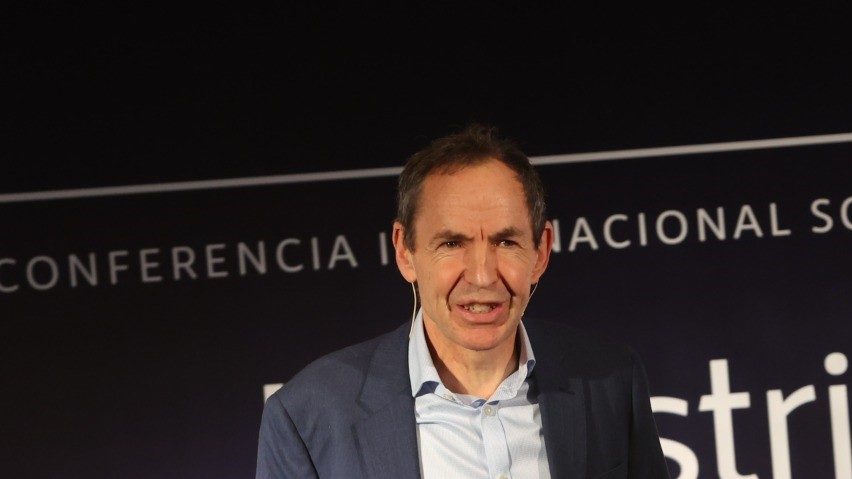Information and Communication Technologies (ICT) have registered extraordinary growth in recent years. They stand to be instrumental in mitigating climate change, since they contribute to improving the efficiency of the entire economy. The challenge currently is to reduce their environmental impact as much as possible, for which, according to Professor Mike Berners-Lee, a carbon footprint specialist, they must themselves become as energy efficient as possible.
Berners-Lee, Professor at the University of Lancaster, was the keynote speaker at the First International Conference on Innovation in Energy Management ,held in Zaragoza on November 24. The event was organized by Foro Sella and Foro Industria y Energía, with the support of CEOE de Aragón, the Energy Cluster of Aragon and the University of Zaragoza.
What role does innovation play in the energy transition process?
Innovation is essential for the energy transition. The good news is that all this innovation we need is feasible and already in the development process . The objective would be to be able to cover all of humanity’s energy demand through renewables.
To do this, in addition to generating enough renewable energy, we need to find a way to make it available where and when it is needed, which means finding ways to store and transport it so that the points of use can use it in the form in which they receive it. In this sense, networks are of great importance.
On the other hand, the energy transition will be much easier if we can reduce our total energy demand, for which it is really important that we innovate: we have to find improvements to increase energy efficiency in all industries, as well as in the rest of the sectors.
How will this energy transition affect the production model?
I think it’s worth taking a step back and looking at the overall situation humanity finds itself in right now. We have become a very powerful species and the world is very sensitive to our impacts. We need to live differently, taking much better care of the planet we are on. And this need has great implications for society.
Therefore, we must approach the economy in a different way, because we can no longer continue growing, expanding and impacting our planet. This approach also affects politics, since we need to collaborate at a global level more than ever.
but there are other interrelated elements that are equally important: biodiversity, the need to guarantee food for a growing population… while trying to create a more peaceful world.
All these factors have a decisive influence on the industry: we need to maintain the production of all the elements that enhance our quality of life, but with the lowest possible environmental impact. Therefore, we need to get better at “dematerialisation”, making our products last, making them sustainably, making them repairable, as well as improving the quality and quantity of our recycling. Improving all these processes constitutes an enormous change, which at the same time requires an extraordinary technological challenge.
And along with all that, we must also rethink how we live and how we behave, what quality of life really is, what things really matter to us and what impact they have.
How can ICT and data centers contribute to the ecological transition?
Over the past 50 years, the ICT industry has grown from virtually nothing to a huge sector that is probably responsible for 4-5% of global greenhouse gas emissions today. And in this, it has become millions of times more efficient in everything it does. Furthermore, let us keep in mind that the reason for this great growth is that it is providing efficiency improvements in all sectors of global society.
The point is that the more efficient we become, the more we produce. Therefore, ICT, at the moment, is not currently reducing our total greenhouse gas emissions. However, going forward, if we can constrain and then eliminate the use of fossil fuels, we will need ICT even more to increase our efficiency. And at the same time, we will need the ICT industry itself to be as efficient as possible.
Therefore, data centers (and their energy consumption) will almost certainly continue to increase, due to their increasingly important role in our lives. Therefore, it is essential that the sector gains energy efficiency. Using renewable energy from relatively local sources will often be helpful in delivering this.
Access Mike Berners-Lee’s presentation at the Conference and watch his full speech.

